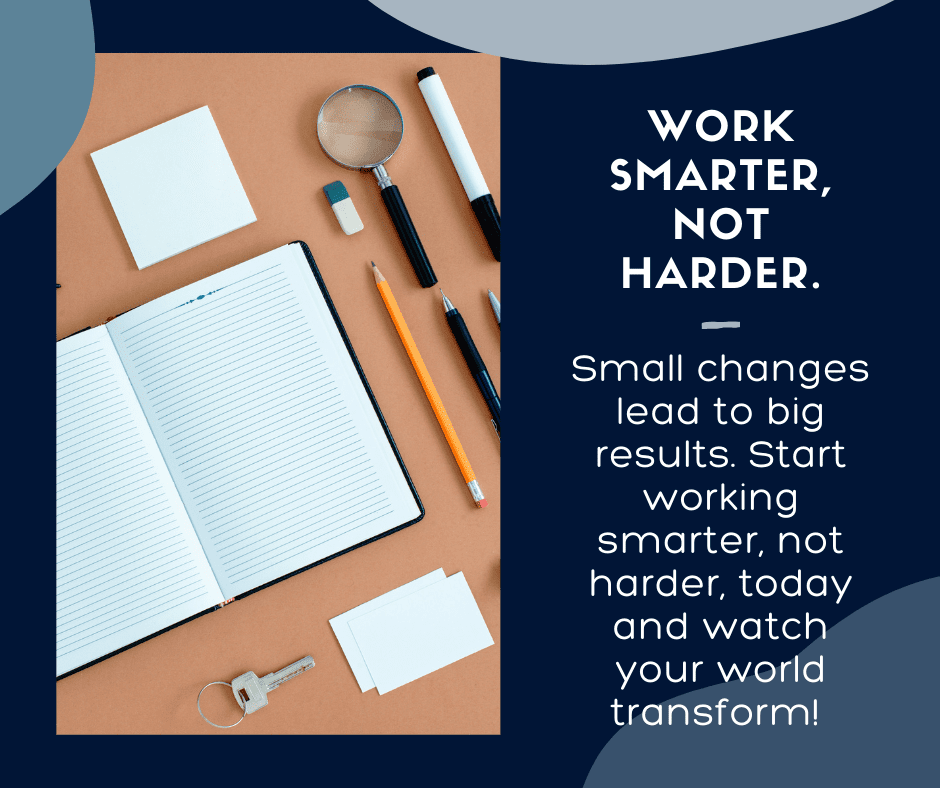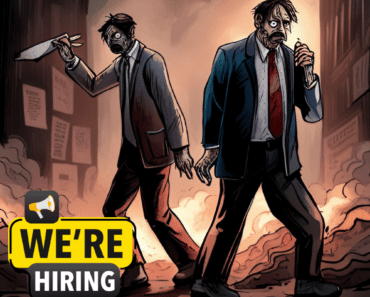Last Updated on October 5, 2023 by Subject Of Life
One thing you hear a lot from successful people is that you should work smart, not hard. This essentially means you should use tools and proven strategies to get as much or more done with less energy, time, and money. If you feel like you are working too hard, here are some things that could help.
9 Things You Need To Do To Work Smarter, Not Harder

-
Prioritize Your Tasks
Do you ever find yourself overwhelmed with your workload, working tirelessly and feeling like you’re getting nowhere fast? It’s time to start prioritizing your tasks.
By focusing on the most important or urgent tasks first, you can ensure that you’re spending your time and energy in the most effective way possible.
Rather than spreading yourself too thin trying to do everything at once, prioritizing allows you to tackle tasks one by one with a clear and focused mindset.
Not only will you be able to work more efficiently, but you’ll feel a sense of accomplishment as you cross off tasks from your to-do list.
In short, prioritizing your tasks helps you to work smarter, not harder, and achieve your goals more effectively.
-
Set Clear Goals
Imagine that you’re lost in a forest with no map, no compass, and no sense of direction. You might walk for hours, trying to find your way out, but without a clear destination, it’s unlikely that you’ll make any real progress.
The same goes for your professional life. If you want to work smarter, not harder, you need to set clear goals that guide your efforts in a specific direction.
Without clear goals, you might find yourself working tirelessly on tasks that don’t actually move you closer to your long-term objectives.
By setting clear goals, you can better prioritize your time and effort, making sure that every action you take is a step towards success.
So, if you want to work smarter, not harder, start by setting clear goals for yourself and watch as your productivity and success skyrocket.
-
Delegate Tasks
In today’s fast-paced world, getting everything done can seem like a daunting task. Many individuals tend to take on more responsibilities than they can handle, hoping to be perceived as hardworking. However, this approach often results in poor work-life balance, leading to burnout and decreased productivity.
Delegating tasks to others can help you work smarter, not harder. By assigning tasks to people who are skilled in those areas, you can focus on your strengths and become more effective in your work.
It is not about avoiding work but about being strategic and achieving better outcomes by working together.
-
Get Into The Right Brainwaves At The Right Times
Our brains operate on different frequency ranges, and different activities require different ranges. By understanding which frequencies our brains need for specific tasks, we can ensure we’re optimizing our productivity.
For example, when we need to focus, we should aim to get into the alpha range, which is associated with relaxation and concentration.
Another important brainwave is the theta brainwave, which has been found to increase creativity, productivity, and overall cognitive performance when accessed during certain tasks. Essentially, the theta brainwave helps us work smarter, not harder, by facilitating mental flow states that enhance our abilities to think critically, solve problems, and access much-needed insights to complete a task.
Learn more about this billionaire brainwave here.
-
Avoid Multitasking
In today’s fast-paced world, it’s easy to believe that multitasking is the key to productivity. After all, juggling multiple tasks at once can feel like you are working harder and getting more done.
However, research and studies show that the opposite is true. When you multitask, you are dividing your attention and spreading your focus, which reduces your overall productivity. The quality of your work decreases, and you make more mistakes.
In short, multitasking makes you work harder and achieve less.
In contrast, working smarter involves focusing on one task at a time, completing it efficiently and effectively, and then moving on to the next one. The result is better quality work, fewer mistakes, and a more satisfied you.
-
Take Regular Breaks
While working 24 hour a day may seem like the way to go for ultimate success, it’s not. Research indicates that taking frequent breaks not only improves cognitive function and creativity but also helps prevent burnout and reduce stress levels.
Whether it’s taking a short walk outside, practicing meditation, or chatting with colleagues, incorporating breaks into your workday helps boost overall productivity.
So, the next time you feel guilty for taking a few minutes to recharge, remember that taking breaks is not only acceptable, but it’s also necessary for being a productive and efficient worker.
-
Manage Your Energy
When you manage your energy levels effectively, you’re able to work at your peak performance level, getting more done in less time. This means you’ll be more productive, efficient, and effective in your work.
In short, stop burning the midnight oil and start focusing on how you can get more sleep. Moreover, start eating in a way (especially when you need to be on your game) that promotes energy and doesn’t drain it.
-
Stay Organized
Being organized is more than just a personal preference. It can have a significant impact on how efficiently you work and ultimately, how successful you are.
When you want to work smarter, not harder, staying on top of your to-do list, deadlines, and priorities is crucial. Being organized helps you keep track of what has been done and what still needs to be accomplished, so you can focus your efforts on the most important tasks.
By streamlining your workflow, you’ll be able to complete your work more efficiently, leaving you with more time and energy to devote to other areas of your life.
Being organized also reduces stress and anxiety, as you feel more in control of your workload.
This positive mindset can lead to better decision-making, problem-solving, and overall job satisfaction.
So invest in finding a system that works for you- whether it’s using a planner, digital tools, or simply setting reminders on your phone. Taking the time to get organized will pay off in the long run.
-
Continuously Learn and Evolve
In today’s fast-paced world, industries and job requirements are constantly evolving. To remain relevant and valuable in your field, it’s essential to continuously learn and adapt.
This could mean taking a course, attending workshops or seminars, or even just staying up-to-date on industry news and trends. By consistently learning and expanding your skillset, you’ll be able to work smarter by being more efficient and effective in your job.
Moreover, learning new things can keep your mind sharp and open to new ideas and perspectives. It also shows your dedication to personal growth and development, which can impress potential employers or lead to opportunities for advancement within your current company.
More Reasons To Work Smarter, Not Harder
An intriguing fact about the strategies discussed above is that they not only bolster your professional growth but also contribute to personal development and well-being. The tactics for working smarter, such as organization and continuous learning, extend beyond the workplace. They foster skills like time management, adaptability, and lifelong learning, which can enhance various aspects of your life, from personal hobbies to interpersonal relationships.





